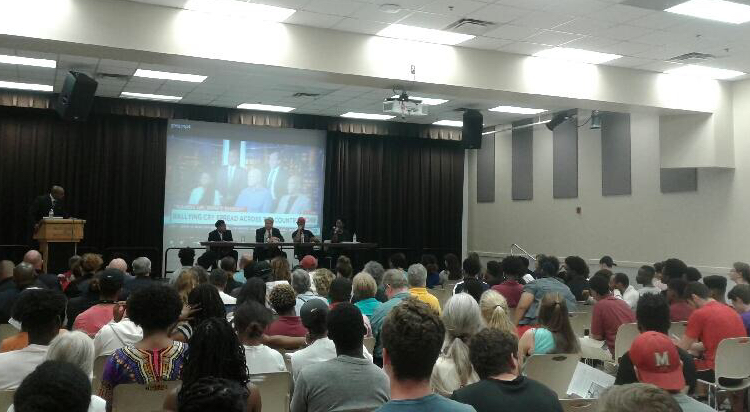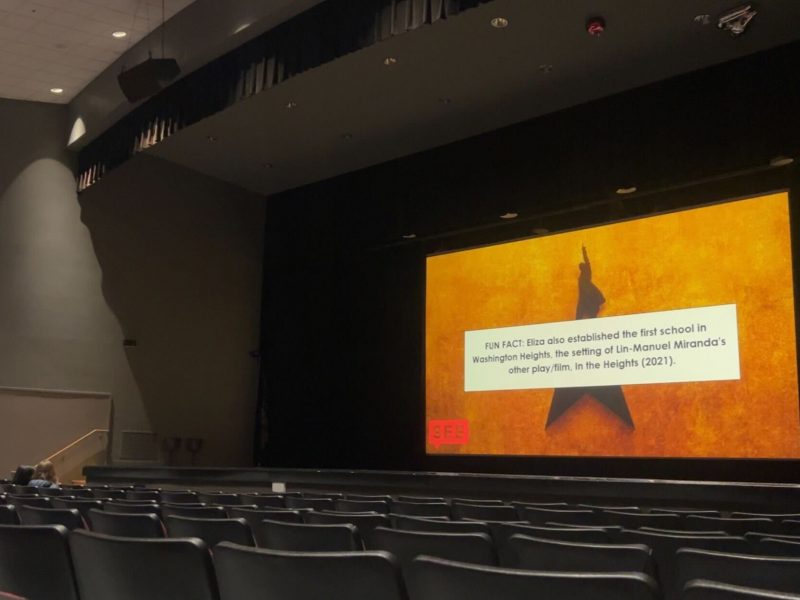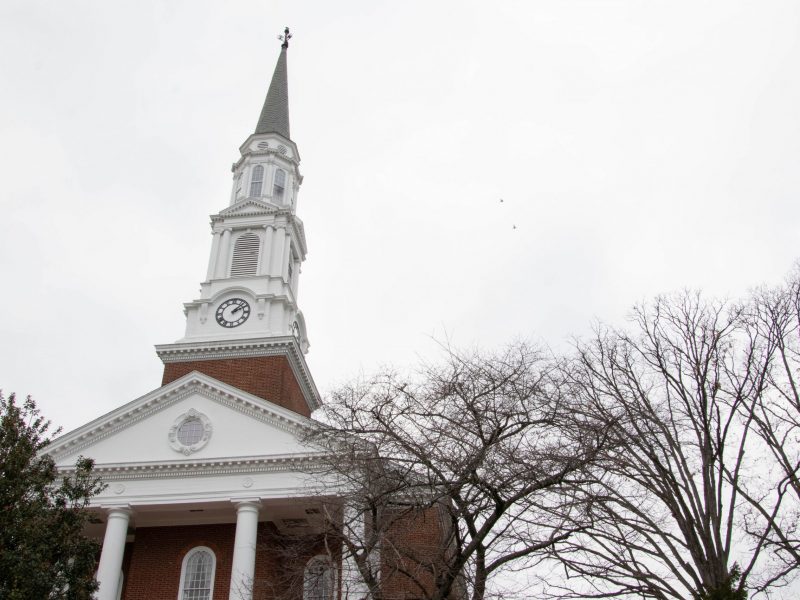Tracey Perry, a pastor at Hyattsville’s University Christian Church, stood and turned toward the rest of the audience.
“I don’t want to teach my son, my black son, tactical training,” she said. “I don’t want to be concerned when my black son goes out at night with his friends and hope that his phone is charged, and if I can’t get through to him, my heart is in my throat.”
Perry and others packed the Nyumburu Cultural Center on Tuesday to discuss the relationship between police officers and the communities they serve. The Black Male Initiative and The Clarice Smith Performing Arts Center co-sponsored the event.
University of Maryland Police Chief David Mitchell said the larger issue is that many police forces around the country fail to engage with those they have jurisdiction over.
Alumnus and panelist Aaron O’Neal, Esq., is an attorney and the Northeast Regional Representative of the African People’s Socialist Party-USA. He said it should be up to the citizens to hire, fire, train and discipline policemen and women.
“Regardless of if our hands are up, if our hands are down, if our hands are behind our back, our hands are in our pockets, whether we have Skittles in our hands, it doesn’t matter,” O’Neal said. “They’re still going to shoot us.”
The event examined the 2014 killing of Michael Brown, who was 18 when police officer Darren Wilson shot him in Ferguson, Missouri. Brown’s death prompted the “Hands Up, Don’t Shoot” rallying cry.
Brown’s body was left in the middle of the street, despite the officers’ training in first aid and CPR. Responders did not dispatch to the location for four hours. Mitchell called the act “despicable.” An injured officer, Mitchell added, would have been tended to immediately.
“The death of an 18-year-old by hands of the police can never be valid in my mind,” he said.
Mitchell has witnessed officers playing into stereotypes while working. After the 9/11 attacks, he was superintendent of the Maryland State Police and said he was ordered to pull over anyone seen wearing a turban.
The room was filled with mothers and their sons, high school and elementary school students, citizens and police officers, black and white people. Jane Hirshberg, the campus and community engagement manager for The Clarice, said her goal was to provide a multidimensional conversation that included diverse perspectives.
“There’s almost an epidemic in this country with police brutality and people of color,” she said. “I didn’t want it to be a kind of situation where people are leaving without hope or feeling like there’s no answer.”
The conversation turned toward ways people of color, in particular, can protect themselves after the question was posed from a young man in the audience.
“I’m saddened that young man had to ask that question,” said panelist Yejide Orunmila, the president of the African National Women’s Organization.
Most panelists and the host — university alumnus and attorney Gregory Yancey, Esq. — said to comply with the officer, have a friend record the encounter if possible and later file a complaint. Mitchell insisted University Police officers take complaints seriously, saying in incidences of misconduct, he has fired, demoted and decertified officers from serving in the state of Maryland.
“We’re not going to stand for that,” he said. “We make mistakes, but some mistakes you don’t recover from … you don’t deserve to wear a badge.”
However, Orunmila is skeptical of officers’ responsiveness to complaints and said in many cases the officer’s word is usually taken over the citizen’s.
“Proving to society that you’re human is just the most type of, just really baseless type of way we have to act,” Orunmila said.
Keith Wallace, an activist and playwright included in The Clarice’s inaugural Do Good Dialogue, said that while citizens should be familiar with their rights, ultimately, the responsibility should lie with law enforcement to implement the laws correctly, adding that it is unrealistic to expect most people to be familiar with the intricacies of legislation.
“We have to really start to shift the onus back on the people who are sworn and deputized to protect and serve the community,” he said. “Those are the folks who are trained in these laws, and they should be the ones who are taking the time to explain the law.”



